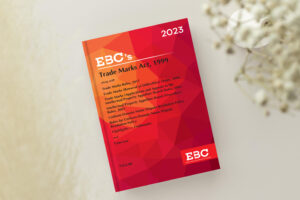Madras High Court: In an appeal filed by leading Laptop manufacturers in the world, Lenovo (Singapore) under Section 57 of the Trade Marks Act, 1999, (‘the Act’) seeking to rectify, cancel and remove the entry relating to the impugned mark ‘THINBOOK’ in Class 9 made in the name of RPD Workstations , from the Register of Trade marks, Abdul Quddhose, J. concluded that Lenovo is exclusive proprietor of THINK Family of Marks, for which, trade mark registrations have already been obtained both in India as well as in Abroad; that Lenovo has acquired distinctiveness for its THINK Family of Marks by its long and continuous usage; and that the mark ‘THINBOOK’ is deceptively and phonetically similar to that of the Lenovo’s THINK Family of Marks. Thus, while allowing the petition under Section 57 of the Act, the Court, directed the Trade mark Registry to cancel the impugned mark ‘THINBOOK’ in Class 9 from the Register of Trade marks, within a period of four weeks from the date of receipt of a copy of this order.
Lenovo claimed that it is the originator, prior adopter, prior user and prior registered proprietor of the THINK Family of Marks including THINKPAD and THINKBOOK for a varied range of goods and services, including those falling under Classes 09, 16, 35 and 42. Lenovo has been using THINK Family of Marks since 1992 for a wide variety of goods and through such use, the said trade marks have been associated exclusively with them. Their THINKPAD and THINKBOOK are entitled to be protected as a well-known trademark within the meaning of Section 2(1)(zg) of the Act. According to Lenovo, since THINK Family of Marks belongs to them, the public at large is likely to think that the impugned mark is another addition or extension to THINK Family of Marks.
The Court viewed that as pleaded in this petition, Lenovo has obtained several trade mark registrations under various Classes in respect of their THINK Family of Marks. It also has gained reputation of its own in India and Abroad in respect of their products, viz., Laptops, Notebooks, Ipad, etc., by using THINK Family of Marks. Therefore, certainly, the use of the mark ‘THINBOOK’ by RPD Workstations will cause confusion in the minds of the public as to the origin of the same. The public would certainly think that since the mark ‘THINBOOK’ is phonetically similar to the petitioner’s THINK Family of Marks, the said mark ‘THINBOOK’ also belongs to Lenovo.
Therefore, on account of causing confusion, the Court said that it cannot allow the mark ‘THINBOOK’ to remain as a registered mark in the Register of Trade marks.
The Court remarked that by misrepresentation, RPD Workstations has been able to convince the Trade mark Registry and obtained registration of its mark ‘THINBOOK’ under Class 9 and the Registrar of Trade marks, also by total non-application of mind to the fact that Lenovo is the registered proprietor of THINK Family of Marks has permitted registration of the mark ‘THINBOOK’ in favour of RPD Workstations.
The Court concluded that Lenovo is exclusive proprietor of THINK Family of Marks, for which, trade mark registrations have already been obtained both in India as well as in Abroad; that Lenovo has acquired distinctiveness for its THINK Family of Marks by its long and continuous usage; and that the mark ‘THINBOOK’ is deceptively and phonetically similar to that of the Lenovo’s THINK Family of Marks.
Thus, while allowing the petition under Section 57 of the Act, the Court directed the Trade mark Registry to cancel the impugned mark ‘THINBOOK’ in Class 9 from the Register of Trade marks, within a period of four weeks from the date of receipt of a copy of this order.
[Lenovo (Singapore) Pte. Ltd. v. RPD Workstations Private Limited, 2024 SCC OnLine Mad 7336, decided on 03-12-2024]
Advocates who appeared in this case :
For Petitioner: Mr. Ramesh Ganapathy
For Respondent: Mr. S. Janarthanam, SPCGSC


